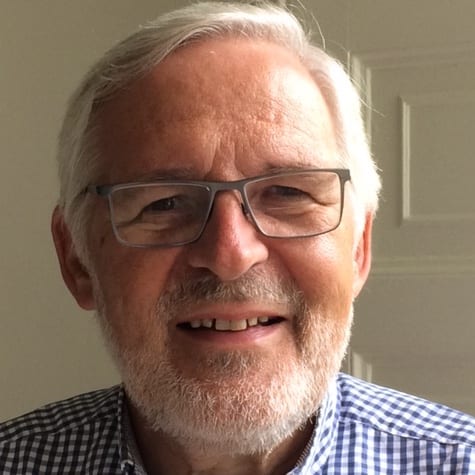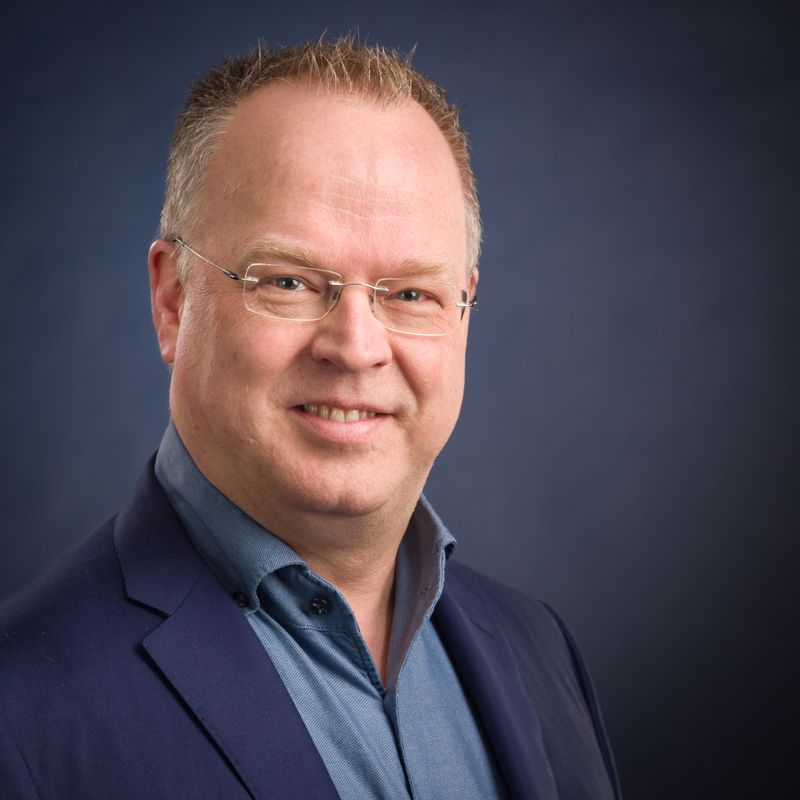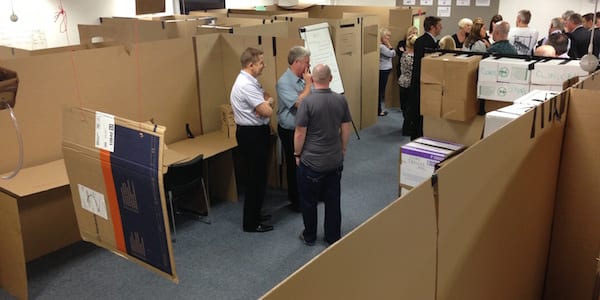
The founders reflect on 10 years of Planet Lean
FEATURE - The editorial board members of Planet Lean reflect on the magazine's origin story and its role within and contribution to the Lean Community.
Words: Dan Jones, René Aernoudts, Michael Ballé, John Shook and Jim Womack

Dan Jones
When I was working with Tesco to apply the lessons from Toyota’s just-in-time Parts Distribution System to their supply chains, they said: “We can’t do this on our own - we need to bring the rest of the grocery industry with us.” So, we distilled the stories from our early projects with willing suppliers and told them at many Efficient Consumer Response conferences across Europe. With the help of Alan Mitchell, who covered the grocery industry for the Financial Times, we also created a successful communications channel to spread the word.
This convinced me we needed such a communications channel for the growing lean movement. When I found Roberto Priolo, I knew we had the right person to run it. He was very quick to grasp the significance of a story and could turn it into readable prose much faster than any of us. He was also willing to travel the globe to seek out new angles. Michael Ballé and I convinced René Aernoudts to back us, and Planet Lean was born. In time, it became to glue that holds the Lean Global Network together. One of the best hunches I ever had, and I am very proud with what Roberto has done with it. Long may it inspire others to follow their path to lean.

René Aernoudts
It’s amazing that Planet Lean has been around for 10 years already! Time really does fly…
I remember how Dan launched the idea and got me enthusiastic about it. It took some heated discussions with the Executive Committee of the Lean Global Network, and several iterations of the A3 I made before we could really launch the website.
Roberto has been the key in making this a success through all these years, doing countless interviews and iterations of articles, and learning how to make videos and align with all our LGN colleagues.
Thanks to everyone who was willing to share their stories, ideas and inspiration as well, and the entire Lean Global Network for supporting Planet Lean.
Here’s to another 10 years!

Michael Ballé
The lean movement is unique in management thinking. This is not just because it is an alternative to the finance-dominated MBA thinking and offers a way for company leaders to align business performance and employee personal and professional fulfilment, but also because it is a truly international movement. It’s an emergent system built from ideas from many different countries: Japan, the US, clearly, but also Germany, the Nordic countries with their unusual social model, and Brazil or China, where many original lean experiments were carried out by Taiichi Ohno.
Personally, I was recently recounting the birth of The Lean Strategy: it started from a discussion with Marcus Chao and Joe Lee in Taiwan, following an encounter on the shop floor with Toyota sensei and Ohno alumni Takehiko Harada. We then pursued these ideas with Dan Jones, on the way back from a lean conference in Germany – which led to further discussions with Jacques Chaize from France and Orry Fiume from the US. I find this cultural melting pot to bring to life a waste-free world management ideal fascinating.
Thanks to Roberto's tireless work to find and bring out lean stories from all over the world, we can see the true extent and reach of the lean ideal and all its many experiments and initiatives. Planet Lean makes the lean movement real in a way that projects will never do, as they pass and – as we know – so rarely contribute to true transformation because senior leaders often fail to see the lean big picture and what it means for the sustainable, profitable success of their firms.
Ten years is a long time, and such a short time to make ideas change. Congratulations Planet Lean and to all its contributors! Well done, Roberto, and here's to the next ten years!

John Shook
Ten years. A blip. For each of us personally. For me, it truly seems like yesterday that a group of us pondered the rough idea of creating an alternative “journal” to capture the countless stories of lean progress that we saw occurring around the globe. From there, a small trial to see what the journal might look like and whether or not we could actually pull it off, to assigning a name (Planet Lean? Lean Planet?) to a decade of over 1,100+ inspirational stories.
Ten years is a blip, too, on the timeline of paradigm shifts in business practice or organizational theory. From Kuhn to Levi-Strauss to Joel Barker (who remembers his early viral video?), we know that shifting paradigms (or mindsets or mental models or, my preferred term, thinking) indeed takes a long time. Progress in such muddy arenas as “how people think” or “how organizations work” is neither easy nor linear. Ideas become entrenched, new ones come along and are tried, some stick while others disappear, some progress occurs, and some backsliding follows. Recently celebrating my 40th anniversary in this endeavor (it was late 1983 that I joined Toyota in Japan), such vicissitudes aren’t just the musings of theorists – given enough time, we humans can see the messiness unfold in real time.
Venues such as business schools (that bizarre American invention), journals, book publishing, media storytelling are all still dominated by the old paradigm of classic modern management with key features, including leader-as-hero, success defined as short-term growth at all costs, employees as cogs in a machine, community as an afterthought (or no-thought). And all the others.
Some aspects of lean are now taken-for-granted tables stakes to operating a business, to running any organization. Yet there are also organizations that proclaim their “lean-ness”, yet couldn’t be further from lean as described in ten years of Planet Lean stories. All too often, we witness companies citing the need to “go lean” as their excuse for narrow cost cutting, so often achieved, sadly, through headcount reduction. This leads some to conclude that “lean” is in a rut.
Conversely, there are countless organizations that have embraced lean principles with the term “lean” nowhere in sight. New terms come along – the point is not what label one may ascribe (lean, agile, excellence, etc), but the principles, the practices, the thinking that goes into the actions taken to improve, to learn from the inevitable “failure” and to continue continuing. Never stop. Never give up.
We knew ten years ago (as we knew 30, if not 40 years ago) that the fight to overcome classic management would be long and fraught with obstacles. Planet Lean couldn’t hope to overcome the challenges on its own, but an outlet to tell stories could provide one key enabler: a place for any organization (whether or not affiliated with the Lean Global Network, by the way) to share their experiments and learning.
Thanks to Roberto Priolo for his tireless efforts and expert hand in assisting over 800 organization leaders in telling their stories. Thanks also to the non-profit institute members of the Lean Global Network who fund Planet Lean, making the content available free of charge to anyone with interest.
Finally, and most importantly, a reminder: Planet Lean (along with its new cousin, the annual Lean Global Connection 24-hour marathon of lean content) extends an open invitation to any organization leader who wishes to share with the world his or her efforts to improve. Sharing encourages learning, the supreme engine and reward of Lean Thinking and Practice.

Jim Womack
Dan Jones and I started to think about a global journal for lean thinkers – to share ideas and experimental results – in the late 1980s, as we were finishing up The Machine That Changed the World. Our idea was a print magazine for a global readership, but we could never find a way to make it practical.
When the Lean Global Network began to form in 1998, we thought some more. The web was suddenly a practical reality and the cost of a web-based electronic magazine – a “webzine” in the lingo of the time – was a small fraction of that of a print magazine. But we needed a special person to bring it to life – an enthusiast for lean ideas, a talented editor of submitted articles, an engaging interviewer and researcher who could find new authors and new ideas, and a master of digital media. Wow. Did such a person exist?
After a ten-year search, Dan eventually found the multi-talented Roberto Priolo and Dan and Rene Aernoudts immediately agreed that Roberto was the gift we sought. They convinced the executive committee of the LGN that it was finally time to pull the trigger on an idea more than 20 years old. And Planet Lean was born. (Regrettably, I was busy with other things by this point and deserve zero credit for Dan, Rene, and Roberto’s great achievement.)
This good thing, like so many good things, took time. But it has become the centerpiece of the Lean Community and I look forward to its continuing role as the meeting point for lean thinkers across the globe and a key element in our missionary activities to bring the whole planet around to Lean Thinking.
Read more


ARTICLE - Improving healthcare architecture means truly meeting patient requirements. This article reflects on the power of 3P design and looks at an implementation in the North East of England.


FEATURE – Effectively applying just-in-time and achieving flow is impossible without leveling production first. Yet, most companies seem to think this is impossible because demand is so variable… but is it really?


FEATURE – In a transformation, should we spread responsibilities across the business or go for a centralized Lean Office? For their second piece, our Polish colleagues look at what they have learned on the field.


WOMACK’S YOKOTEN – Somehow surprisingly, management schools teach very little about management, and when they do all learning is classroom-based. Instead, they should go to the gemba.
Read more


ROUNDUP – Knowledge sharing is a powerful enabler of lean change. In this roundup, our editor discusses the benefits of yokoten and shares a few examples.


FEATURE – If you think one is born a leader, think again. Leadership can be learned and, in this article, the author provides a four-step guide to developing it.


FEATURE – Lean is a people-centric system for learning that acts as an alternative to traditional management and financial capitalism. It represents the best strategy a company can adopt to meet the needs of the future.

